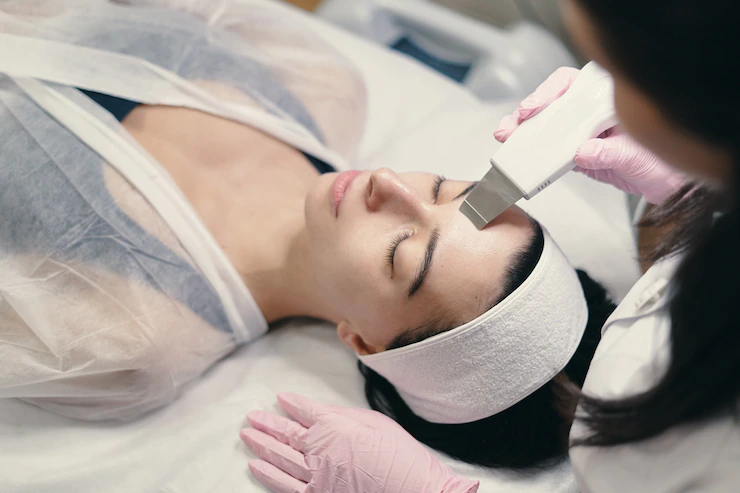8 Things to Expect on Your Next Appointment at Skin Clinic
Are you stressed out because of your skin? You are worried and tired of using different masks on your skin. Wait, sit back and relax.
The best way to all of your problems is to visit a good dermatologist. If you plan to see a dermatologist for the first time, or you have already scheduled an appointment.
Visiting a dermatologist isn’t the same as seeing your primary care physician. Knowing everything you need to know before your appointment will help you get the most out of your initial visit. What information should a patient have before visiting a dermatologist?
A patient should know what a dermatologist does and treats and the warning signals that it’s time to seek professional treatment with your skin in a specialized skin clinic, hair, or nails.
Finally, you should be aware of the most acceptable methods for preparing for the appointment and the most typical blunders to avoid during the visit.
Before you go to a dermatologist, make sure you know what dermatologists do and how they may help their patients. Dermatology, in a nutshell, is the study and treatment of health problems involving the hair, nails, skin, and mucous membranes.
Dermatologists are the experts who best understand how the body interacts with the skin and how even minor rashes and other symptoms can signal the presence of significant disorders. Assume this is your first time seeing a dermatologist.
In such a scenario, you should be informed of the exact goal of your appointment, as well as whether or not it comes within the realm of your selected dermatologist’s expertise.
So to help you out, we are here to answer your queries. Read out the blog patiently!
Is a Dermatologist beneficial?

Most of us have only dealt with general practitioners or primary care physicians, so visiting a dermatologist may seem like an unnecessary trip to the hospital or clinic. “Can a dermatologist truly assist with my condition?” is one of the most common inquiries we get from potential patients. “Can you tell me what to expect during my visit?”
Just because you believe your condition is purely aesthetic does not imply a specialist should not evaluate it. Patients often believe a sudden “pimple” is just another pimple, but it turns out to be an early stage of skin cancer. Dermatologists are specially trained to detect, diagnose, and treat skin problems at a skin clinic that other doctors may miss.
Related Guide: Daily Skin Care Tips That Will Make You Look 5-10 Years Younger
8 Things to Expect From a Skin Clinic

1. Do your thorough research
The first and most important duty should be to get out your laptop and conduct research to find the greatest possibilities. You may even use other terms to search on Google. Such as “skin clinic in Calgary.” It is quite a hectic task, but it will be beneficial to you once you get done with your research.
Similarly, take time to book your appointment to avail the best services. Women often visit dermatologists, but you must also visit one soon if you’re a man.
2. Prepare your questions in advance
Begin your visit with a list of questions in mind. To provide context to your doctor, make a detailed note of your concerns, pre-existing medical issues, medications taken, and family history. Include any previous skin conditions you’ve had, particularly seasonal ones.
Instead of forgetting your most pertinent questions and only recalling those after leaving the clinic. Making sure you write down your worries before your appointment guarantees that you get the most out of your dermatological visit.
Your dermatologist will have a more excellent grasp of your medical history, skin disorders, and any treatments you’ve undergone. If you submit additional information ahead of time, which will assist your doctor in providing a treatment plan moving forward.
3. Examine your cosmetic procedures
Cosmetic operations necessitate just as much, if not more, research as medical procedures.
Because the components in injectables may interact negatively with certain drugs or diets, it’s critical to supply your dermatologist with a complete medical and personal history.
By carefully planning for your cosmetic treatments, you can reduce the possibility of having adverse effects.
4. Don’t forget to bring your pictures
Your doctor would appreciate it if you brought in images in addition to your comprehensive medical records. This will aid them in diagnosing and comprehending acute skin disorders and other occasional issues.
Bringing in a younger photo of yourself will help them better comprehend your facial shape if you’re having cosmetic operations done.
This will give your dermatologist a better understanding of how your face looked when you were younger, making any attempts to reproduce your youthful appearance much more accessible.
5. Always schedule treatments ahead of time
Never schedule treatments on the same day as a big event like a party or a business function. Even treatments that may be finished in 30 minutes during lunchtime might cause adverse effects that take hours, if not days, to heal.
Bruising, swelling, and drooping are all possible side effects. Make sure to plan ahead of time for your treatments. Call your dermatologist’s clinic and ask them if you have any queries regarding how long in advance is enough.
6. Prepare to respond to a few questions
Prepare to answer questions about your medical history, including illnesses unrelated to your skin. Your dermatologist will inquire about any prior or current health conditions.
They’d also like to hear about the family’s medical history, such as if anyone in the family has had acne or skin cancer.
7. Avoid wearing makeup
You may get by with a bit of foundation and concealer during the day, but it’s good to get your makeup done when you see your dermatologist.
Going without makeup can help your dermatologist better diagnose your issue since your doctor will be able to examine your skin more closely.
8. Set a realistic for yourself
It’s good to start seeing your dermatologist by being patient and realistic about your treatment plan.
Because it takes time for your skin to adjust to new medications and treatments, don’t expect to see complete results overnight or right away. Some new medications require weeks to demonstrate their usefulness fully.
Final Thoughts
Please arrange an appointment with a board-certified dermatologist for a complete body skin check, as they have received extensive skin clinic training in skin cancer screenings. Keep in mind that a skin cancer test could potentially save your life. We hope that this blog will help you. Do not forget to share your feedback with us. Till then, stay healthy and wealthy!
Read Also
- Top 10 Skin Care Tips for Beautiful Skin
- 7 Underrated Ways to Take Care of Yourself
- 8 Ways Probiotic Skin Treatments Can Restore Your Glow
- Tips On Natural Ways To Take Care Of Your Skin In The Summer



